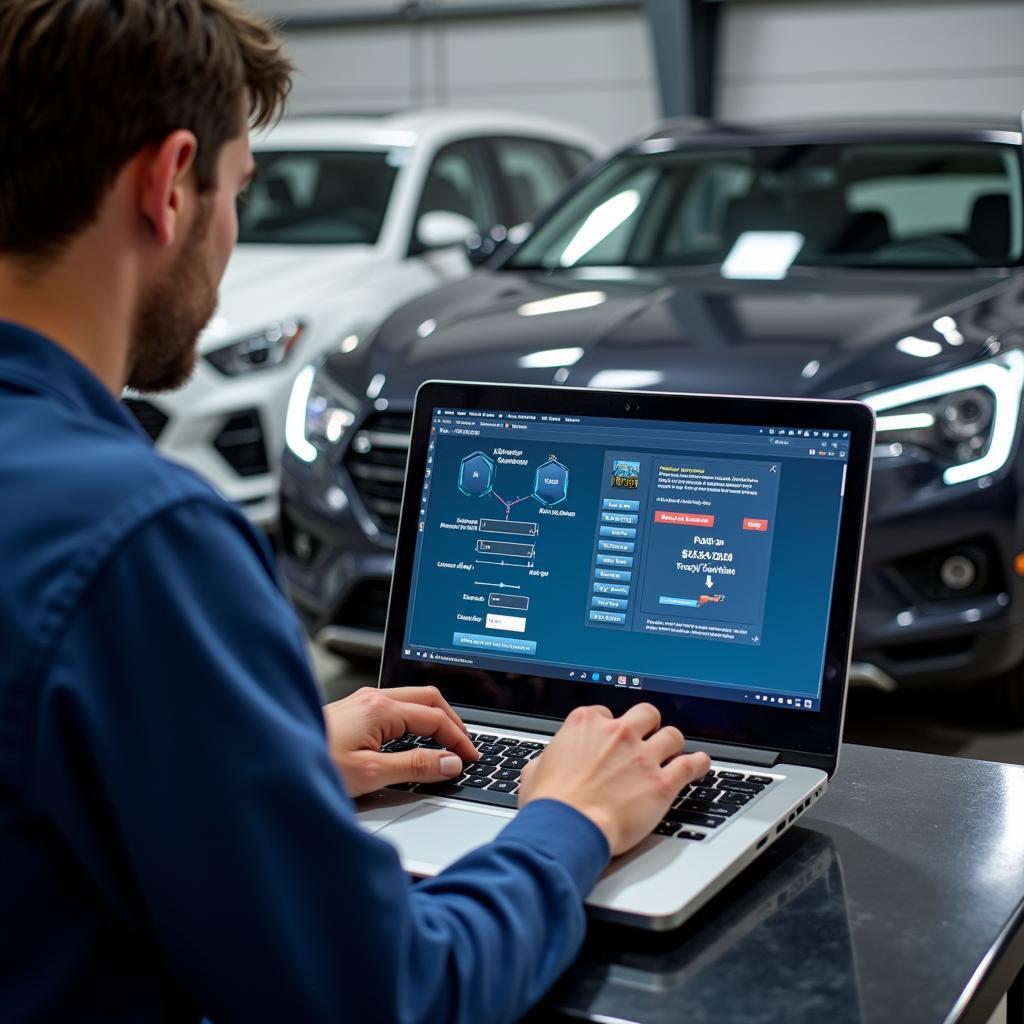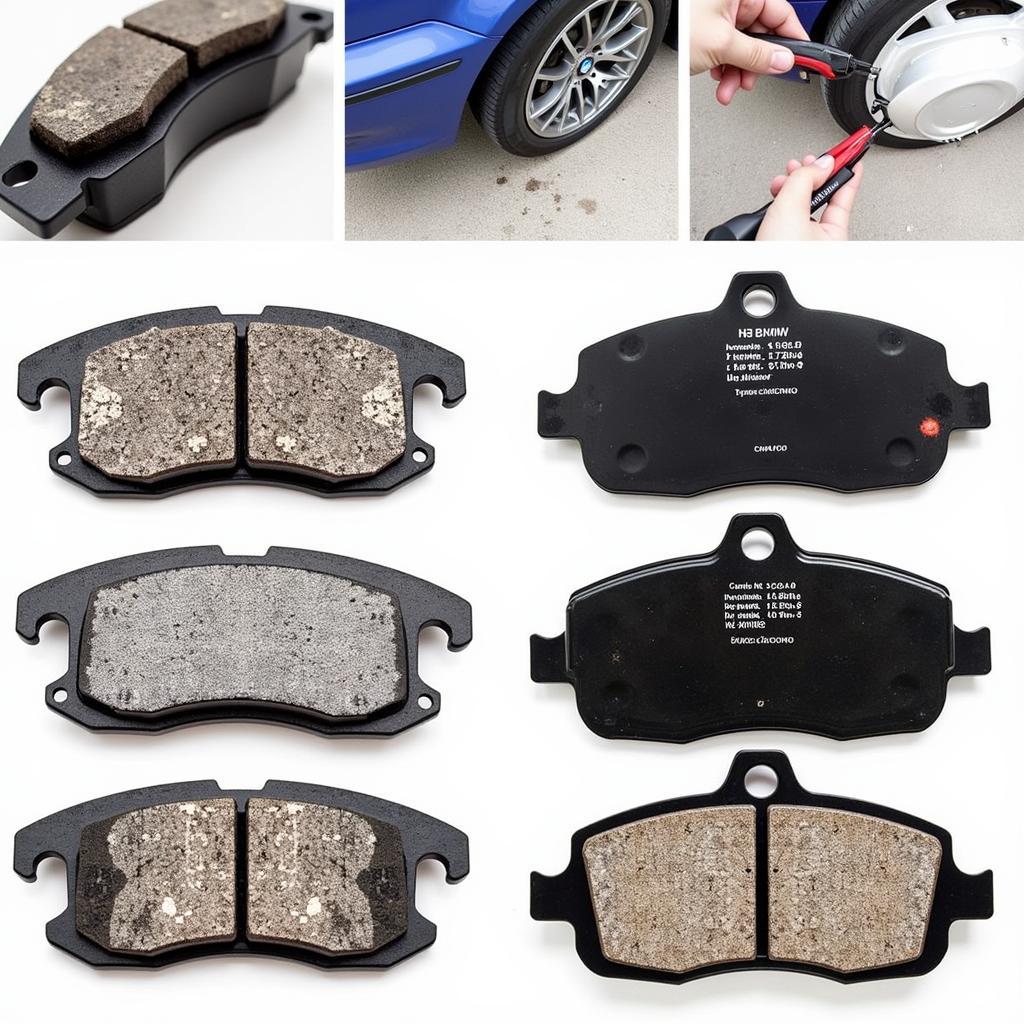The brake warning light on your VW Beetle’s dashboard is a crucial safety feature that shouldn’t be ignored. When illuminated, it signals a potential problem with your braking system that requires immediate attention. This article will delve into the common causes of a VW Beetle brake warning light, guide you through potential solutions, and provide expert insights to help you navigate this issue safely and effectively.
Common Causes of a VW Beetle Brake Warning Light
Understanding the reasons behind your VW Beetle’s brake warning light is the first step towards a solution. Here are the most common culprits:
1. Low Brake Fluid Level
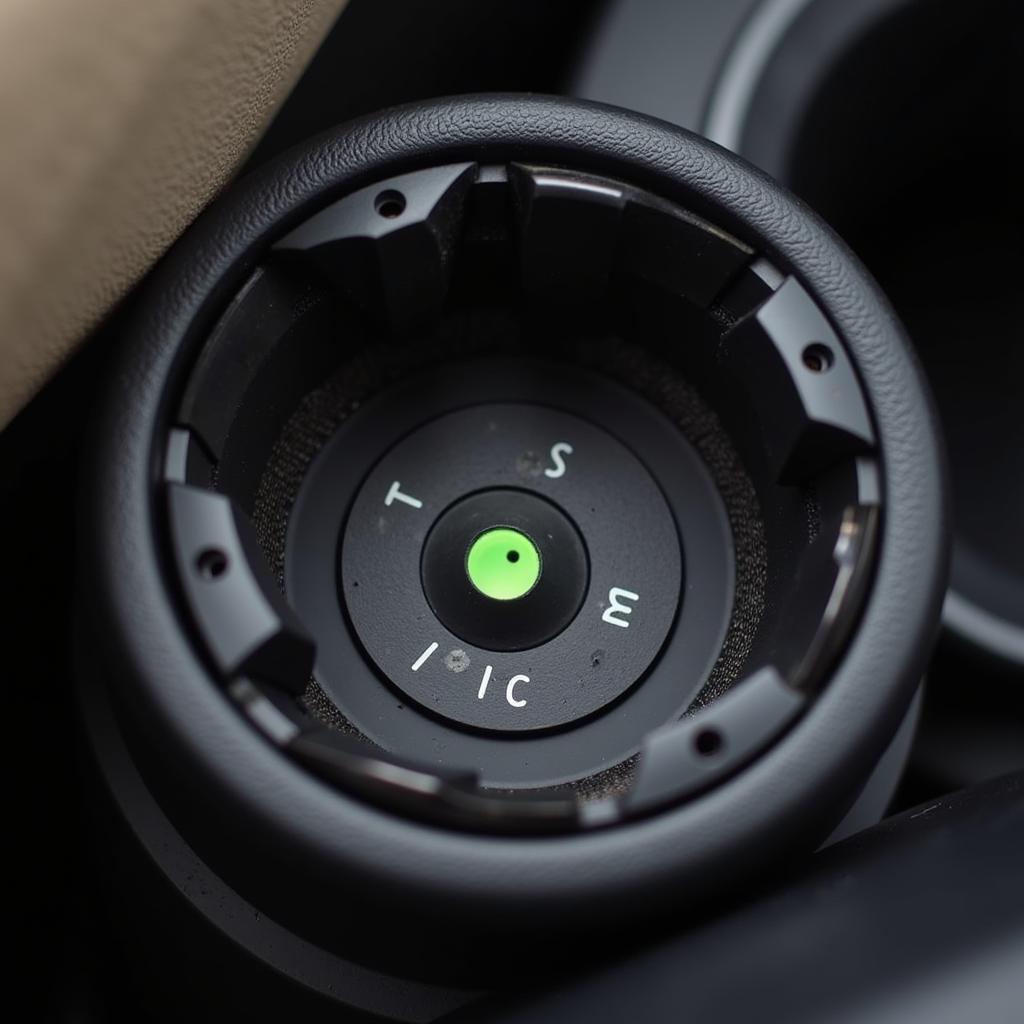 VW Beetle with Low Brake Fluid
VW Beetle with Low Brake Fluid
One of the most frequent causes is low brake fluid. Brake fluid is the lifeblood of your car’s braking system, transmitting the force from your foot on the pedal to the brake pads that stop the wheels. A leak in the brake lines or worn brake pads reducing the fluid level can trigger the warning light.
“Always check your brake fluid level first when the warning light comes on,” advises master mechanic, Richard Klein. “It’s a simple check that can save you a lot of trouble.”
2. Worn Brake Pads
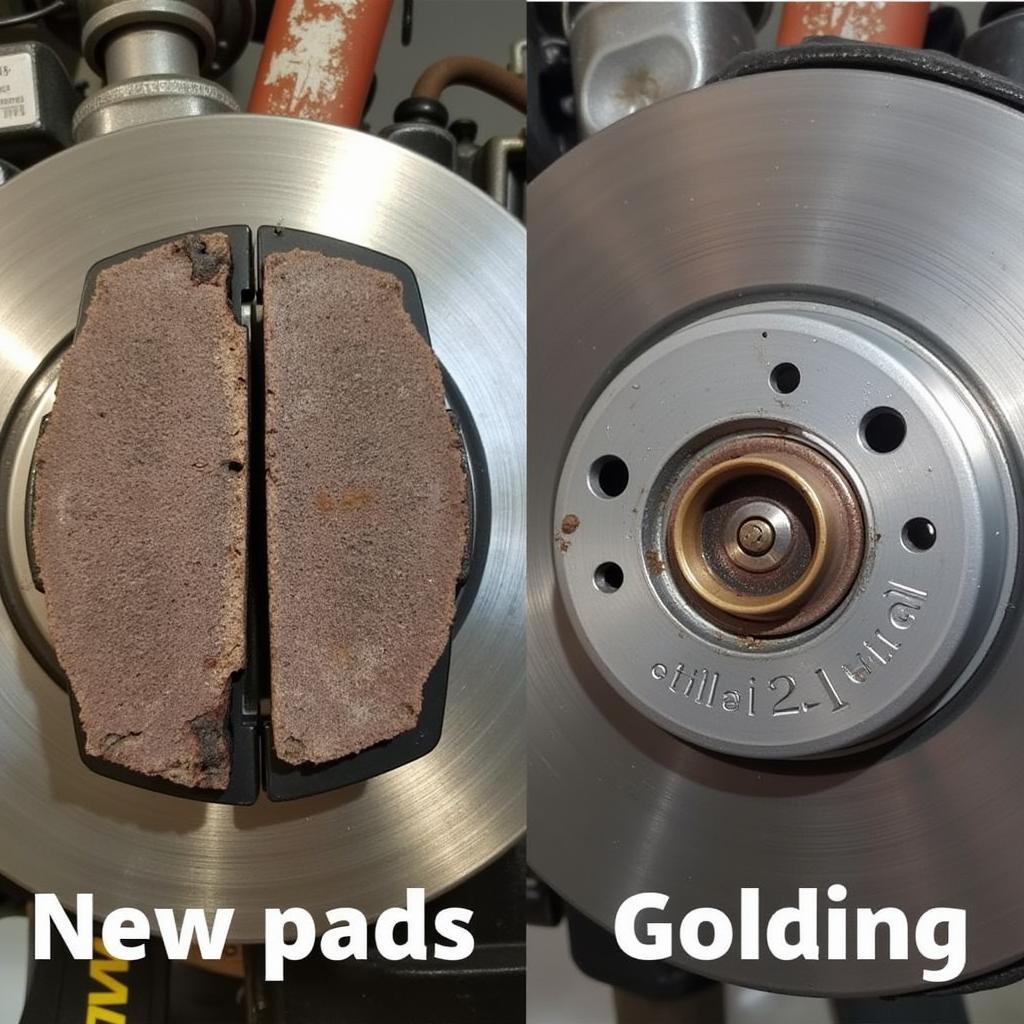 Worn Brake Pads on a VW Beetle
Worn Brake Pads on a VW Beetle
Brake pads are designed to wear down over time. As you apply your brakes, friction between the pads and rotors generates the stopping power. When the pads wear thin, a sensor triggers the warning light to alert you it’s time for a replacement.
3. Faulty Brake Light Switch
While less common, a malfunctioning brake light switch can also illuminate the brake warning light. This switch, located behind the brake pedal, signals the brake lights to activate when you press the pedal. A faulty switch might disrupt this signal, leading to the warning light illuminating.
4. ABS Issue
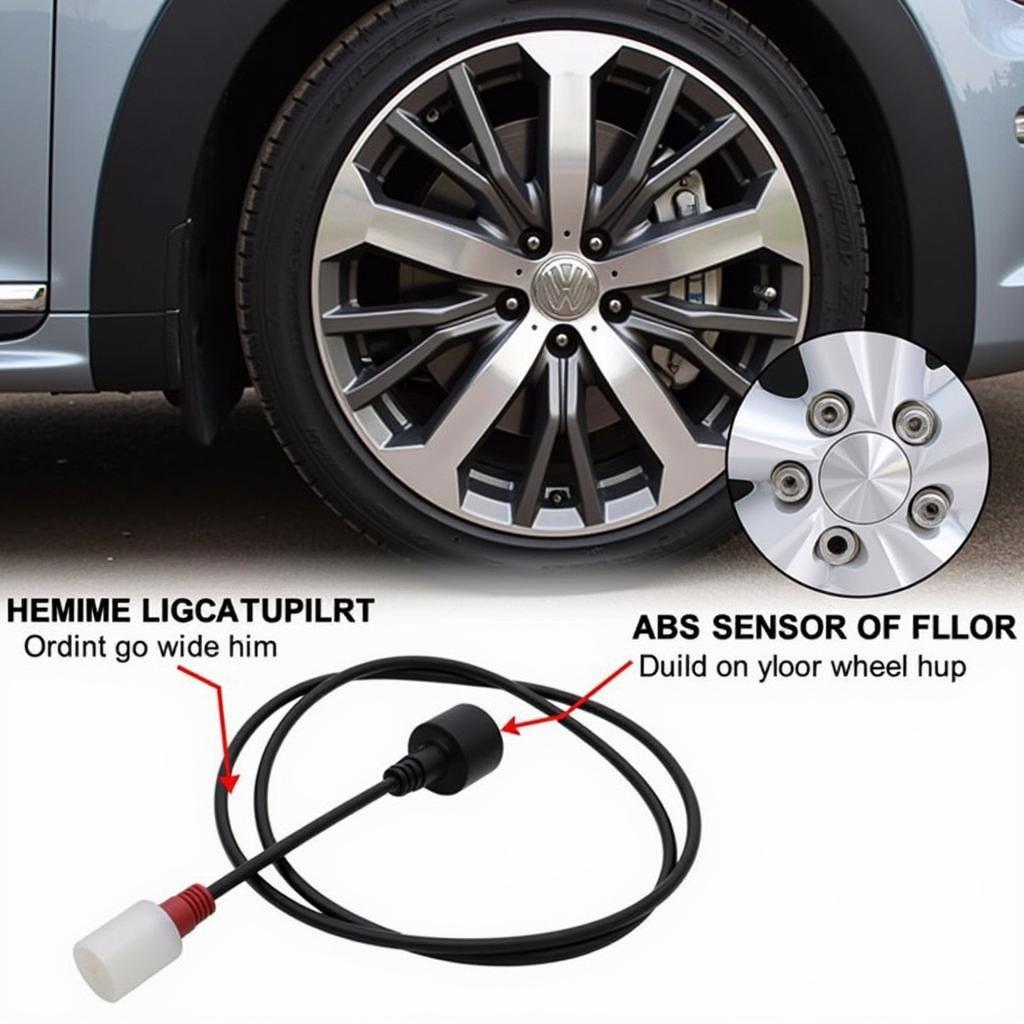 VW Beetle ABS Sensor Location
VW Beetle ABS Sensor Location
Modern VW Beetles are equipped with an Anti-lock Braking System (ABS), designed to prevent wheel lockup during hard braking. A problem within the ABS system, such as a faulty wheel speed sensor, can trigger the warning light.
Troubleshooting and Solutions
Now that we’ve covered the common culprits, let’s explore how to address them:
1. Checking and Topping Up Brake Fluid
Park your VW Beetle on a level surface and locate the brake fluid reservoir under the hood. Compare the fluid level to the minimum and maximum markings on the reservoir. If it’s low, carefully add the correct type of brake fluid recommended for your Beetle.
Important: If you need to add brake fluid frequently, suspect a leak and have your braking system inspected by a professional immediately.
2. Brake Pad Inspection and Replacement
Inspecting your brake pads requires removing a wheel to gain visual access. If the pads appear thin (less than ¼ inch of friction material), it’s time for a replacement. Consider replacing all four brake pads simultaneously for even braking performance.
3. Brake Light Switch Testing and Replacement
Testing the brake light switch usually involves a multimeter to check for continuity. If the switch is faulty, replacing it is a relatively straightforward procedure.
4. Diagnosing and Resolving ABS Issues
ABS issues often require specialized diagnostic tools. If you suspect a problem with your ABS system, it’s best to consult a qualified mechanic or visit a dealership for diagnosis and repair.
When to Seek Professional Help
While some brake warning light issues might be simple fixes, others require professional expertise. If you’re uncomfortable working on your car’s braking system or encounter a complex issue, don’t hesitate to seek help.
“Brakes are not something to gamble with,” warns Klein. “If you’re unsure about anything, always consult a professional.”
Conclusion
A glowing brake warning light in your VW Beetle demands your attention. By understanding the potential causes and employing the troubleshooting tips outlined in this article, you can address the issue effectively. Remember, a well-maintained braking system is paramount for your safety and others on the road.
Don’t ignore the warning signs – prioritize your safety by addressing brake issues promptly and professionally when needed.
FAQs
1. Can I drive my VW Beetle with the brake warning light on?
It’s highly discouraged. The brake warning light indicates a potential problem with your braking system, compromising your safety.
2. How much does it cost to fix a VW Beetle brake warning light issue?
The cost varies depending on the underlying cause. A simple brake fluid top-up is inexpensive, while a brake pad replacement or ABS repair can be more costly.
3. How often should I check my VW Beetle’s brake fluid?
It’s recommended to check your brake fluid level at least once a month and before any long trips.
4. Can I use any brake fluid for my VW Beetle?
No, use only the type of brake fluid specified in your VW Beetle’s owner’s manual.
5. How long can I drive on worn brake pads after the warning light comes on?
Continuing to drive with worn brake pads can damage your rotors and lead to more expensive repairs. It’s crucial to replace them as soon as possible.
Internal Links:
For information about warning lights on other BMW models, check out our guides on BMW warning lights brakes, BMW ABS DSC and brake warning light and BMW S1000RR brake warning lights. You can also find helpful information regarding the BMW X5 brake pad warning light and BMW Z4 warning lights brake asc.

